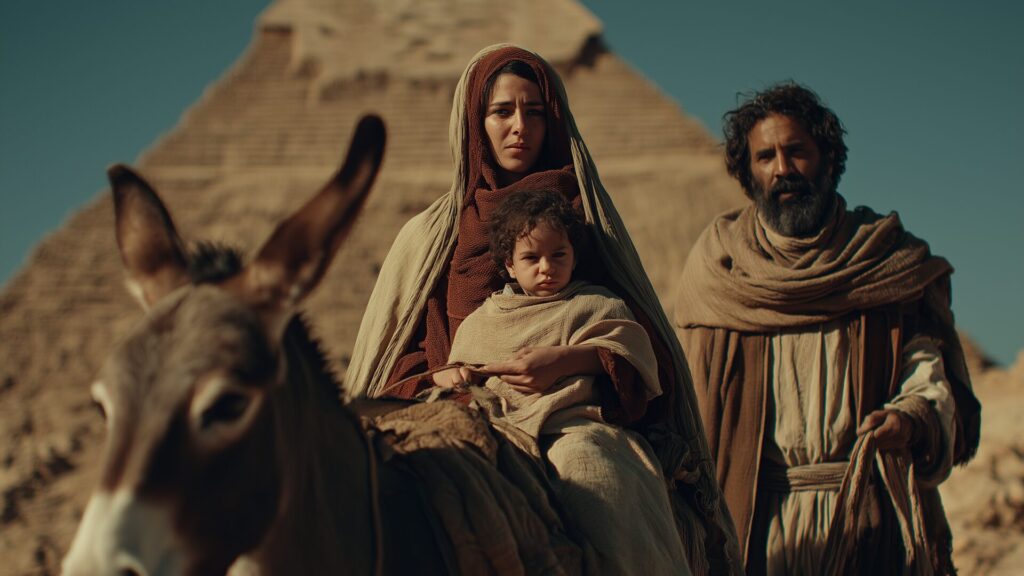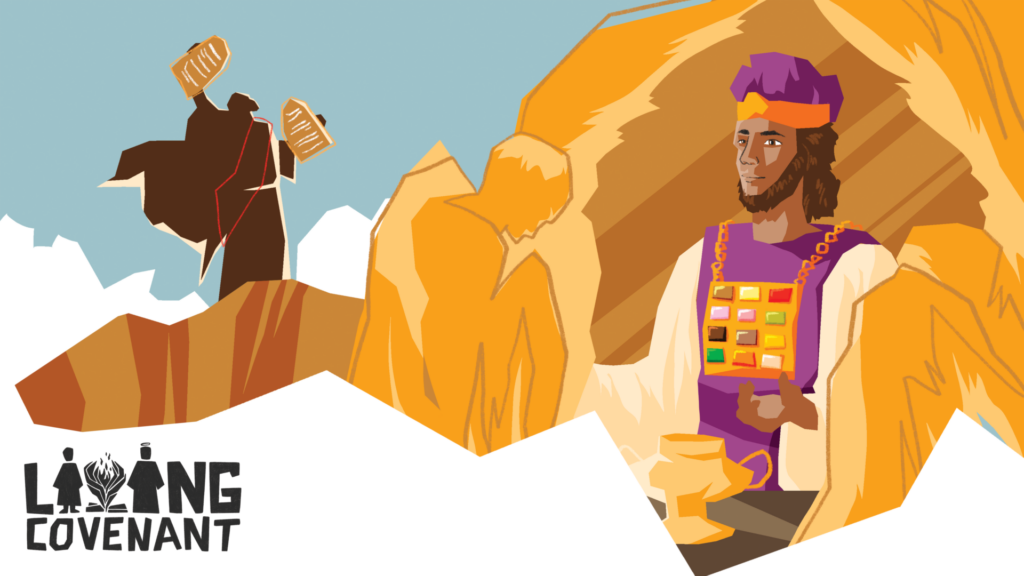A sermon for adapting and sharing on Possibility Ministries Sabbath (April 25), prepared by Pastor Jeffrey Jordan, who is himself deaf and ministers to the Deaf around the world.
A caregiver takes care of an elderly person. A widow gets involved with feeding the homeless. A widower prays for the missionaries all around the world. An orphan gets invited to play with a neighbour’s child. A paralytic in a wheelchair reveals a smiling face to those in contact. A person with mental illness writes uplifting poems to encourage others. A person who is blind directs and leads a summer camp. A Deaf person studies theology at a college, with the aim of becoming a pastor to preach the gospel in sign language.
What do these special individuals have in common? Possibilities! Each one has a possibility. Nothing stops them, even with the challenges they have.
This Sabbath is Adventist Possibility Ministries (formerly Special Needs Ministry) awareness day, a day that the General Conference sets aside once each year. There are seven ministries within the Adventist Possibility Ministries umbrella: caregiver, widow/widower, orphan, physical and mental challenged, blind and deaf.
We are going to look at several Bible stories that include each of the seven ministries. There are two sides of the view in each story: one as the person with a challenge, the other one as the person who has compassion. Listen carefully, because this applies to each one of you.
Caregiver, orphan, physically and mentally challenged: David and Mephibosheth
Look at the story about David and Mephibosheth recorded in 2 Samuel 9.
Samuel 9:1 (NLT) opens with this:
One day David asked, “Is anyone in Saul’s family still alive—anyone to whom I can show kindness for Jonathan’s sake?”
Who was Jonathan? He was one of King Saul’s son and he was best friends with David. Jonathan was killed in a battle along with his father and two brothers some years earlier and it was tragic. Now David wanted to show respect and kindness to his family.
Verses two and three say:
He summoned a man named Ziba, who had been one of Saul’s servants. “Are you Ziba?” the king asked. “Yes sir, I am,” Ziba replied. The king then asked him, “Is anyone still alive from Saul’s family? If so, I want to show God’s kindness to them.” Ziba replied, “Yes, one of Jonathan’s sons is still alive. He is crippled in both feet.”
Here Jonathan had a son who is lame in both feet and his name is Mephibosheth. He’s a cripple! And people with defected bodies are considered not equal with abled bodies. They are downcast from society. I doubt the son was able to walk normally as any other person, nor run, but he probably could go around using crutches. If a wheelchair was invented, he could probably be using it to move himself around.
Continuing with verses 4 and 5:
“Where is he?” the king asked. “In Lo-debar,” Ziba told him, “at the home of Makir son of Ammiel.” So David sent for him and brought him from Makir’s home.
Mephibosheth is also an orphan, because he had lost his father and possibly his mother, given that he was currently under the care of Makir and his family. An orphan since the age of five, but he’s now a man and had a son. A child is considered an orphan if he loses a parent or both parents. In addition to that, as a physically-challenged person, someone would need to be a caregiver! Someone would need to lift Mephibosheth in/out of the bath, carry him up/down the stairs, cook meals and take him on errands. Not an easy task. The household of Makir’s must have served as a caregiver.
In addition to these challenges, what was Mephibosheth’s state of mental wellness? As a five-year-old boy, he lost his family members during that war. It must be devastating to him. Was he depressive? Did he have suicidal thoughts? Desire for revenge? Anger issues or unkind to those around him?
Let’s go back to reading. Verses 6 and 7 state:
His name was Mephibosheth; he was Jonathan’s son and Saul’s grandson. When he came to David, he bowed low to the ground in deep respect. David said, “Greetings, Mephibosheth.” Mephibosheth replied, “I am your servant.” “Don’t be afraid!” David said. “I intend to show kindness to you because of my promise to your father, Jonathan. I will give you all the property that once belonged to your grandfather Saul, and you will eat here with me at the king’s table!”
Here, David had a kind heart! He wanted Mephibosheth to be a part of his life by inviting him over to eat at the king’s table! Not just once but for life! At first, Mephibosheth was afraid because he wasn’t sure if he would be welcomed by David. He could be killed right there on David’s orders. But that was not David’s intention. Through God, he wanted to show kindness to Jonathan’s son and treat him well.
In addition to the privilege of eating at the king’s table daily for life, David wanted to give the land that belonged to his grandfather Saul back to him! He wanted to treat Mephibosheth equally as one of his family members. To be fair, David felt obligated to keep his promise he had made to his best friend Jonathan that he would show kindness to his family. The point in this is that David has shown us how we need to treat others even those who are different from us. We need to treat them in the same way we want them to treat us.
Now, what was Mephibosheth’s response to David’s offer? He would be shocked so here’s what he said in verse eight:
Mephibosheth bowed respectfully and exclaimed, “Who is your servant, that you should show such kindness to a dead dog like me?”
By his response he was being grateful for the opportunity given him. But, because of the society surrounding him, he viewed himself as a “dead dog”. He felt that he was nothing, nothing important enough to be in the king’s circle—a crippled, orphaned man who needed special care. Who would want him? What would David say? Would he change his mind? Would David still want to show kindness to him? Let’s read verses 9 to 11.
Then the king summoned Saul’s servant Ziba and said, “I have given your master’s grandson everything that belonged to Saul and his family. You and your sons and servants are to farm the land for him to produce food for your master’s household. But Mephibosheth, your master’s grandson, will eat here at my table.” (Ziba had fifteen sons and twenty servants.) Ziba replied, “Yes, my lord the king; I am your servant, and I will do all that you have commanded.” And from that time on, Mephibosheth ate regularly at David’s table, like one of the king’s own sons.
Wow! Because the land of Saul was given to Mephibosheth, the king didn’t want him to work in the field. I don’t think it was because of his deformed feet; David considered Mephibosheth as one of his own sons. The king commanded that Ziba and his sons and servants work in the field to supply food. The entire household would have ample supply of food to eat, but Mephibosheth would always eat at the kings’ table. What an honour!
The king didn’t change his mind. He was determined to make a difference in Jonathan’s son’s life. This echoes in the last two verses—12 and 13:
Mephibosheth had a young son named Mica. From then on, all the members of Ziba’s household were Mephibosheth’s servants. And Mephibosheth, who was crippled in both feet, lived in Jerusalem and ate regularly at the king’s table.
Awesome! From being hopeless to being full of hope! From being a nobody to being a somebody! From being outside of society to being included in its core! From being rejected to being accepted!
David revealed what Christ would have done. Christ accepts anyone and does not view those with “limits” as impossible, something that they can’t contribute to those around them. There’s a possibility in each person that he or she can make a difference to others for God.
Widow/widower: Elisha and the widow
Let’s look at three other special ministries that are not mentioned in the story of Mephibosheth. The first short story is about Elisha and the widow in 2 Kings 4:1-7. Verse 1 says:
One day the widow of a member of the group of prophets came to Elisha and cried out, “My husband who served you is dead, and you know how he feared the Lord. But now a creditor has come, threatening to take my two sons as slaves.”
The nameless woman had lost her husband and she is now referred to as a “widow”. In those times, it was not easy living as a widow, because you had lost the security and income that you got from your husband. These days, it’s still difficult to live as a widow. In this story, the widow is facing the risk of losing her two sons to a creditor for unpaid bills! The only way to “pay off” the debts is to sell your children! Talk about worry and stress! Her only possession of worth was a jar of oil. He prospects were not good.
Elisha, the prophet, heard about her precarious situation and instructed her as to what to do. She was to borrow as many empty vessels as possible from her village. After collecting the vessels, the widow and her two sons were to pour oil out from the only jar she had. And so they did. When the first vessel was full, they then poured into others Her jar never emptied until the last borrowed jar was filled. [pullquote]
Now, what should they do with the jars full of oil? What would you do? 2 Kings 4, verse 7 says:
When she told the man of God what had happened, he said to her, “Now sell the olive oil and pay your debts, and you and your sons can live on what is left over.”
Wow! The widow was able to sell the oil and pay off debts! She and her sons were able to live without any problems. They were spared and taken care of.
Through God, Elisha was able to rescue the woman and her sons. Helping widows and widowers is greatly needed in many parts of the world. While in some countries widows might receive monetary assistance, in others they don’t. But don’t you think we need to be sensitive to their range of needs? We can help them.
Blindness: Jesus and Bartimaeus
Another story is that of the blind man Bartimaeus found in Mark 10:46–52. He was sitting by the roadside begging. But when he heard that Jesus was coming, he shouted for Jesus to have mercy on him. Jesus heard him and called for the blind man, asking him what he wanted. Says verse 51:
“What do you want me to do for you?” Jesus asked. “My Rabbi,” the blind man said, “I want to see!”
Of course Jesus knew what he wanted but wanted to give Bartimaeus the opportunity to acknowledge his needs for a complete recovery. He wanted his sight! Verse 52 states:
And Jesus said to him, “Go, for your faith has healed you.” Instantly the man could see, and he followed Jesus down the road.
There, Bartimaeus received his sight! He was healed! Imagine his reaction when he saw Jesus’ face for the first time!
As a result, the now-seeing man has decided to follow Jesus down the road. Jesus really cared . . . and we are to do the same. There are many people who are suffering, and they need us to provide hope.
Deafness: Jesus and the deaf man
The final short story is about a deaf man, also healed by Jesus. It is found in Mark 7:31–37. Verse 32 states:
A deaf man with a speech impediment was brought to him, and the people begged Jesus to lay his hands on the man to heal him.
Apparently, the deaf man didn’t know who Jesus was, but his friends did. Why would they? Perhaps it was because of a language barrier. Maybe no one could communicate with him and tell him who Jesus was. Maybe he couldn’t read and write. Maybe sign language was not used at that time. Lack of a formal education is common in many rural areas in this world today. Anyway, the deaf man’s friends were concerned, and they cared enough by bringing him to Jesus and begged Him to heal him of his deafness. And, of course, Jesus did!
Records verses 34 and 35:
Looking up to heaven, he sighed and said, “Ephphatha,” which means, “Be opened!” Instantly the man could hear perfectly, and his tongue was freed so he could speak plainly!
The deaf man was able to hear and speak for the first time! Imagine hearing the birds sing, children laughing, donkeys bleating, a mother’s voice saying, “I love you!”
Through the proactive efforts of the deaf friends, Jesus was able to transform his life.
Conclusion
In closing, millions of people around the world have some type of challenge in their lives, such as being a caregiver, widow or widower, orphan, or have physical or mental challenges, or are blind or deaf. But no one is to be viewed as someone who cannot do anything because of their challenge. Instead, they are to be viewed as people with possibility! That is why the General Conference has recognised this huge need by forming Adventist Possibility Ministries to help spread awareness and encourage us to be inclusive of proactive in helping those with special needs.
Everyone can do something for the Lord. Whether it be by giving Bible studies, feeding the homeless, praying with prisoners, being faithful, or just by smiling and making a difference in someone’s life. You can make a difference to others no matter the challenges you face in your life.
The ultimate question is, Will you be willing to make a difference for Jesus?
Jeffrey Jordan is the Deaf pastor of Southern Deaf Fellowship near Collegedale, Tennessee (USA). For more information about Adventist Possibility Ministries, visit www.possibilityministries.org.






